PRESERVING A MILITARY LEGACY FOR FUTURE GENERATIONS
The following Reflections represents COL John R. (Dick) Power’s legacy of his military service from 1963 to 1992. If you are a Veteran, consider preserving a record of your own military service, including your memories and photographs, on Togetherweserved.com (TWS), the leading archive of living military history. The following Service Reflections is an easy-to-complete self-interview, located on your TWS Military Service Page, which enables you to remember key people and events from your military service and the impact they made on your life. Start recording your own Military Memories HERE.
Please describe who or what influenced your decision to join the Army.

It was straightforward. My father, a WWII veteran who left the Army as a Captain, gave me sage advice. I was about to enter my freshman year in college in 18. There was still a draft. He told me to get into the ROTC program because it was better to serve as an officer than an enlisted soldier. I would not challenge his credibility about this and so on. Unusually for an 18-year-old, I listened to my father. And went on to serve for almost 30 years and retired as a Colonel. I sure wish he had lived to see that!
Whether you were in the service for several years or as a career, please describe the direction or path you took. Where did you go to basic training, and what units, bases, or squadrons were you assigned to? What was your reason for leaving?
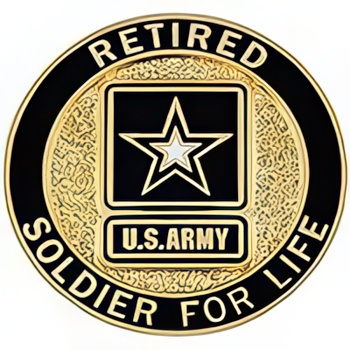
I served for almost 30 years. I was always on the verge of the next great job, promotion, or next important school. As ROTC cadets, we were branch material; my branch was Signal.
I went directly to graduate school for an MBA, and the Army wisely gave me a maintenance officer MOS. I went to signal Officer basic at Ft. Gordon and then on to Basic Paratroop training at Ft. Benning. I was then assigned to Germany in a Signal Maintenance Bn (504th).
Alfa Company was reorganized into the 78th Maintenance Company (Light Equipment), and I was an integral part of that reorganization as the Company Exec/Shop Officer and then company commander. It was a large company (325 officers, WO, and enlisted), and I learned a lot from a lot of great WOs and NCOs. As I was approaching 30 years as a Colonel, I had no choice but to retire. As I started my post-retirement job search, I got an offer, but they wanted me ASAP. So, I retired quickly to join that firm.
If you participated in any military operations, including combat, humanitarian, and peacekeeping operations, please describe those that made a lasting impact on you and, if life-changing, in what way?
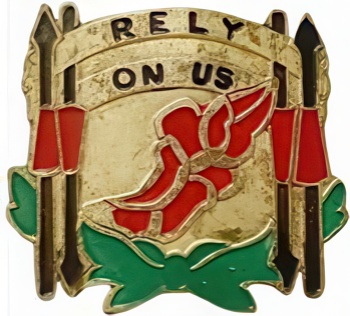
Service in Pleiku, RVN, for most of 1968 made a significant impression on me. I came from a well-ordered battalion and company in Germany, one of the best of its type in theater, to a relatively slap-dash operation in Vietnam. I worked hard to bring it up to a performance standard I felt necessary and was successful in many ways.
However, the racial discord of the times, something that had little or no impact on service in Germany, was difficult for a company commander. Dealing with that, on top of concern over security, mission performance, and the rampant drug presence, made the tour memorable for all the wrong reasons. But we did have some successes. I led the complete remake of the Direct Support Supply Activity to greatly raise the quality of our support; I trained the electronics maintenance shop on running an effective shop supply operation and shop maintenance management to improve output and reduce turnover time and backlogs, took over leadership of the Bn Security Platoon and made them into real soldiers instead of a disorderly and slovenly bunch, and headed the task of building barracks to get all the troops out of tents. We also ran goodwill missions into the bush to build rapport with the locals and built a school in an adjacent Montagnard village. I hope we made a difference. But I’m not going back to find out!
Did you encounter any situation during your military service when you believed there was a possibility you might not survive? If so, please describe what happened and what was the outcome.
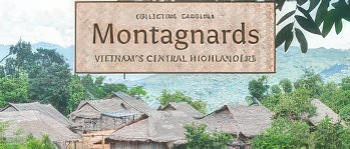
Not exactly, but it could have been I was a company commander in Vietnam, and we had a great relationship with a nearby Montagnard village. We employed many as day laborers, and I often jumped in my Jeep and drove over to talk with the Chief. It was only a kilometer or two away from our perimeter.
One day, I decided to go over to see the Chief and followed my usual routine. There was a gully that the dirt road crossed at the bottom of the low hill upon which the village sat. As I approached the gully, a small child of about five years of age stopped me and tried to tell me not to go to the village. Typical of a captain filled with hubris, I ignored him and went on. As I crested the hill, I saw in the distance a parachute canopy used as a covering over a cookfire in the yard of one of the houses. Around the cookfire were men in black pajamas. Not the Montagnards but Viet Cong. I made a quick U-turn and headed back to base camp. It turned out good as I called group security, and they sent out an ambush patrol and captured some of them, But it was too close a call for me. That five-year-old knew I was a friend of the village and was trying to warn me!
Of all your duty stations or assignments, which one do you have fondest memories of and why? Which was your least favorite?
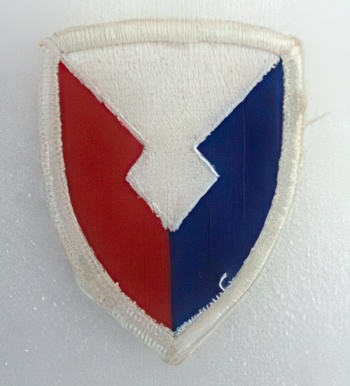
My fondest memories are from my four tours at Ft. Monmouth, NJ. From my first tour as a Captain and newly married to my last tour as a Colonel, I met great people and had demanding duties. I learned a lot from them and hope to make a contribution to the betterment of the Army. The locale was excellent, the post facilities were good, and nice recreation in the area. My second choice certainly would be both my tours in Germany. As an LT/CPT, the first will always remain in my memory for the experience as a company commander, the great leaders we had, and what we accomplished together.
By far, the worst was Vietnam for the reasons described earlier.
From your entire military service, describe any memories you still reflect on to this day.
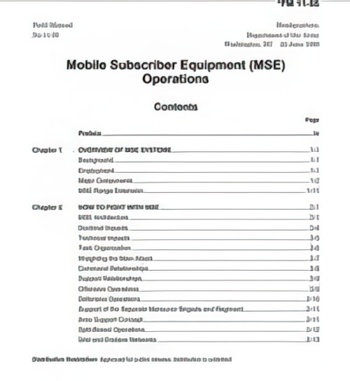
While I have great memories of the good things we did in every assignment, the one I reflect on most is the 4 1/2 years as the Project Manager of the Mobile Subscriber Equipment program. It was one of the Army’s largest programs and transformational for communications on the battlefield. I had been empowered to manage the program my way without much interference. I had the experience of interacting with leaders from the Secretary of Defense and Chairman of the Joint Chiefs, as well as regular engagement with the Secretary of the Army and the Vice Chief of Staff, as well as MACOM and Corps commanders. The level of challenge was great, but we together built a tremendous team across all parts of the Army. The program was delivered on schedule and budget. We went beyond what was planned to put the Internet on the battlefield. Many management, leadership, commercial practice, and production lessons I learned and have passed them on.
What professional achievements are you most proud of from your military career?
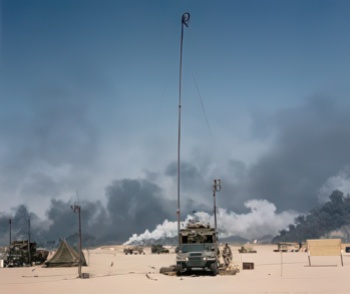
Clearly, it is delivering a very complex system, Mobile Subscriber Equipment, to the tactical Army on schedule and budget. I don’t know of another major defense weapon system that has ever achieved that.
Of all the medals, awards, formal presentations, qualification badges you received, or other memorabilia, which one is the most meaningful to you and why?
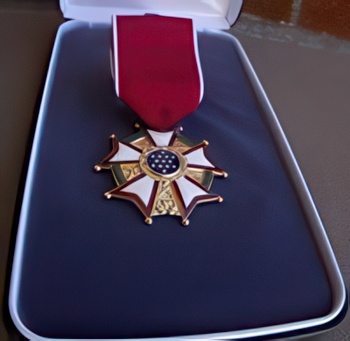
Probably the Legion of Merit, 1st award. It came as I left the job as Project Manager of Mobile Subscriber Equipment. I had the chance to build the team and lead the Army through a challenging process. Our project office did that in a tremendous way. There were a host of folks who made it possible, but the award recognized what we accomplished. It was the culmination of my career.
Which individual(s) from your time in the military stand out as having the most positive impact on you and why?
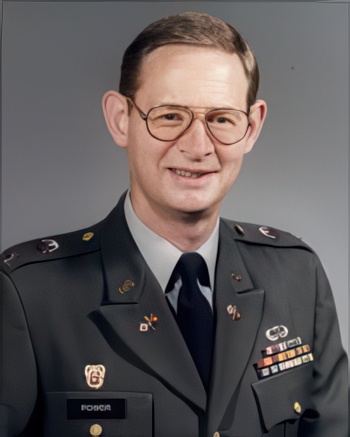
As a young company commander, it was my Bn Cdr, LTC E B Turner, and a warrant officer in my company, CW3 Gil MacDonald. I learned so much about leadership from the former and caring for soldiers from Gil, as well as good maintenance practices from both.
Most of my bosses were pretty hands-off. I guess I was doing well, so they let me do so. But I got a lot of very good guidance from LtC Collins when I was on the 3d Support Brigade staff. I had no experience as a staff officer, and his gentle nudges made a huge difference.
COL Tom Mort was PM SANG during my tenure, and his even-handed help helped me become a sound PM in my own time. Then, I went to the 5th Signal Command in Germany and learned by example from COL Glen Feilke, COL Howie Richards, and BG Joe Racke. What I learned was to go with my instincts and keep the leaders informed. All in all, we did extremely well together.
It’s impossible to list all the influencers here. I’ve written a self-published book that I hope does justice to them and others.
List the names of old friends you served with, at which locations, and recount what you remember most about them. Indicate those you are already in touch with and those you would like to make contact with.
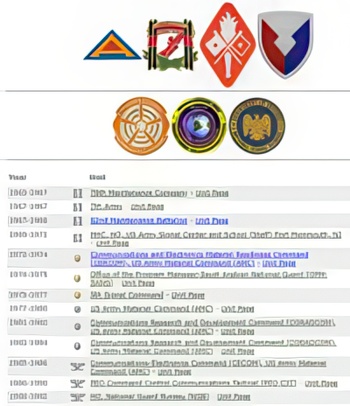
Oh my! There are too many to mention. I fear I’d offend if I forgot someone.
But when I was with the 78th Maintenance Company (LEM), I fondly remember SFC George Butler, SSG Willie Lewis, CW3 Gil MacDonald, CW3 Chuck Hendricks, and 2LT Mike Russo. At the Bn level, I remember LTC Beau Turner, MAJ Jeff Cherry, and LT Bill Thomas.
When in RVN, there were a bunch, but I remember best 2LT Eliud Gonzalez, who characterized himself as a “salt-water wetback” since he was from PR. Also, SFC Michaud and LT Larry Newsome were a really good dude.
At Ft. Monmouth LTC Jesse Galloway, the whole crew worked in our branch.
In Saudi Arabia, COL Tom Mort and COL Harry Miller.
In Germany again, BG Joe Racke, COL Howie Richards, COL Hank Shelby, and COL Glen Fielke, as well as my crew, SFC Hoffman and CPT Dick Russell in particular.
In DC at BMI in AMC HQ, BG Bob Moore, MG Jim Patterson, and COL Jim To
At Ft. Monmouth again, DAC Rich Sacane and COL Don Callahan.
At Ft. Monmouth again, DAC Joe Varady, and at PME, MSE, my deputies are DACs Al Madnick, Dave Keatley, and Al Miller.
In my final tour as IG of the MA National Guard, MG Wayne Wagner, COL Bob Driscoll, and CPT Chris Lynch.
Can you recount a particular incident from your service, which may or may not have been funny at the time, but still makes you laugh?
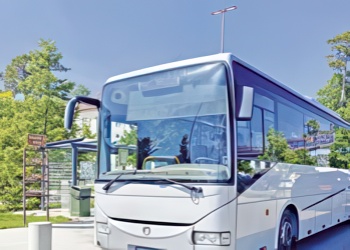
Probably when I was on my first tour in Germany. On payday, we had a “courtesy patrol” to scour the guesthouses and intervene in possible conflicts. I was fresh out of airborne school and had my tan class A’s and jump boots. Most troops had never seen a paratrooper, and I was a pretty “strict” LT. They invited me to stop and have a beer! I didn’t, but we didn’t have any fights that weekend, and I brought a lot of soldiers back to their barracks. Anyone from our Caserne!
The NCO that accompanied me was SFC Jim Kannady who was our Motor Sergeant. The 1/4T only held a couple of troops, so I had him switch us to a 3/4T truck. In that way, we provided a shuttle service for somewhat inebriated troops back to Panzer Kaserne. No arrests that weekend! I was the first officer in the battalion to take out such a patrol, and we set the standard for how it would be done. I think we kept a lot of troops out of German courts!
What profession did you follow after your military service, and what are you doing now? If you are currently serving, what is your present occupational specialty?
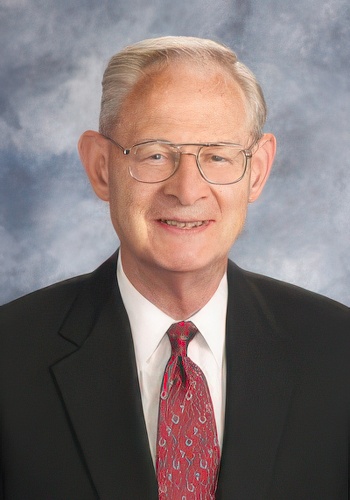
After retirement, I worked for a defense contractor with whom I had great relationships during my service. I never wanted to be a defense salesman and wasn’t asked to do that. I headed Total Quality management for the defense sector and led them to be one of the first in the high-tech systems integration space to adopt ISO 9001 as our quality standard. I later became the program manager for Information Security at the top corporate level for a major telecom.
After their merger with another telecom, I took a separation package (not a golden parachute, but at least a bronze one). I opened my own financial planning firm as a Certified Financial Planning professional with a CFP certificate. I continue to operate in that space.
What military associations are you a member of, if any? What specific benefits do you derive from your memberships?
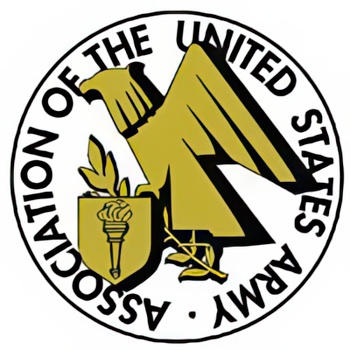
I am a life member of the Association of the US Army, and I believe every career soldier should be. I am also a life member of the Military Officers Association of America and active in my local chapter. I am also a life member of the VFW. Staying connected with the military community after retirement has kept me grounded, and the camaraderie is part of what one becomes used to while serving.
In what ways has serving in the military influenced the way you have approached your life and your career? What do you miss most about your time in the service?
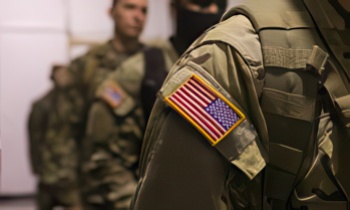
I learned early on to be one who used his creative juices to create unique solutions to situations and to not ask permission, but forgiveness if it went wrong. In that way, the mission moves forward. However, I don’t move forward without proper planning, and I regularly use After Action Reviews with my team to be sure we learn from each other and make things better with each repetition.
What I miss most about the military is the commitment of everyone around us to serve. Rather than complain, we do something to solve the problem. We don’t cut corners or try to build up ourselves to the detriment of others. Being in the military is an “all-in” experience, and there are few jobs in civilian life that come close. Civilians mostly “punch a clock” and leave the work behind, and their bosses have no responsibility for their employees once they hit the parking lot. That is just so different from being a commander with a 24x7x365 responsibility for mission and troops. That level of commitment and engagement was powerful and rewarding.
Based on your own experiences, what advice would you give to those who have recently joined the Army?
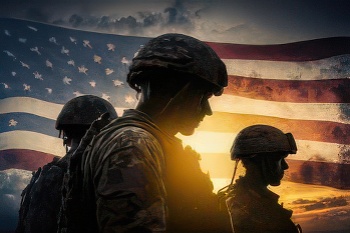
Don’t hold back. Use your physical and mental strength to advance yourself and the mission at all times. Help your superior by asking good questions that might lead him or her to better decisions. Accept the mission as your own and own it. Look to every opportunity to be challenged in your assignment and learn more. Go to every school you can. Realize that every assignment is an opportunity to learn and contribute.
In what ways has TogetherWeServed.com helped you remember your military service and the friends you served with?
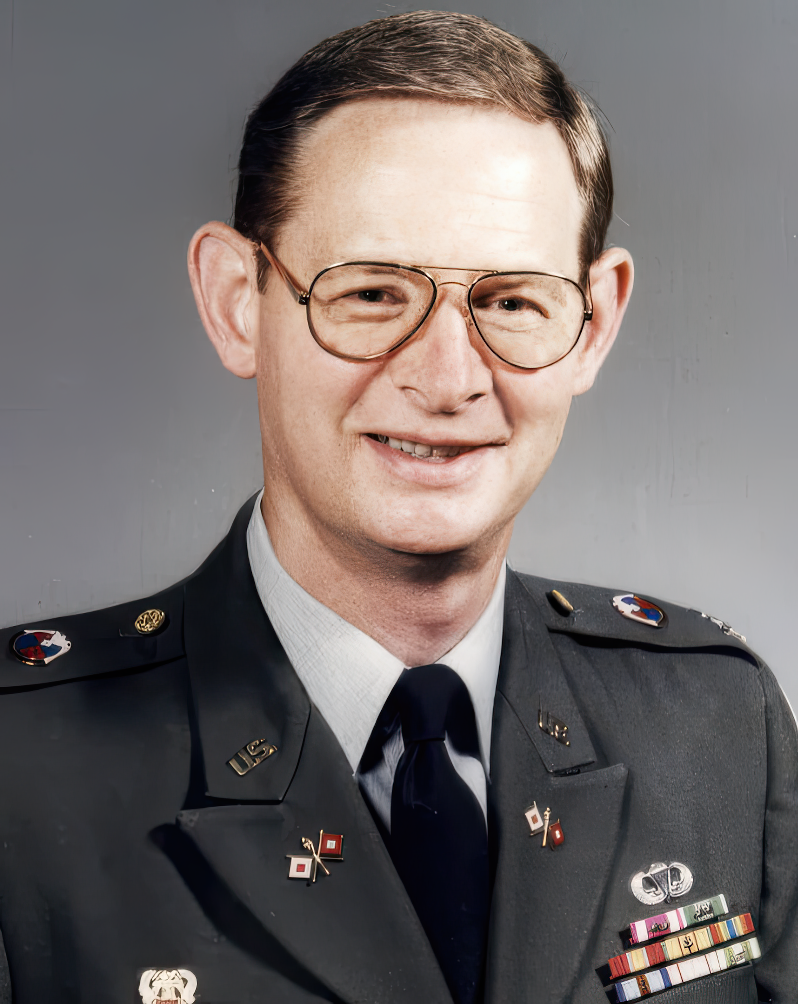
In what ways has TogetherWeServed.com helped you remember your military service and the friends you served with?
PRESERVE YOUR OWN SERVICE MEMORIES!
Boot Camp, Units, Combat Operations
Join Togetherweserved.com to Create a Legacy of Your Service
U.S. Marine Corps, U.S. Navy, U.S. Air Force, U.S. Army, U.S. Coast Guard
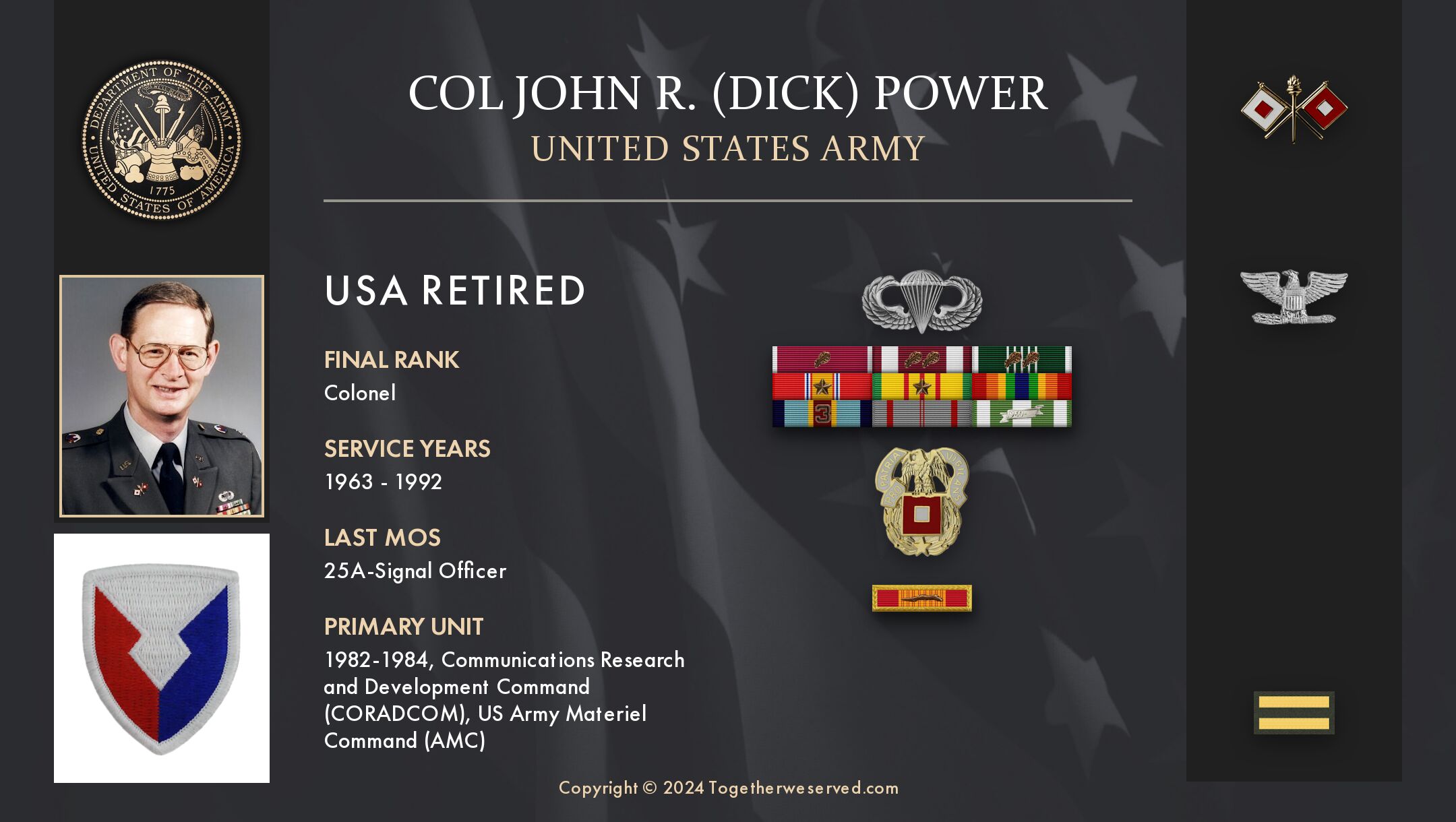
0 Comments